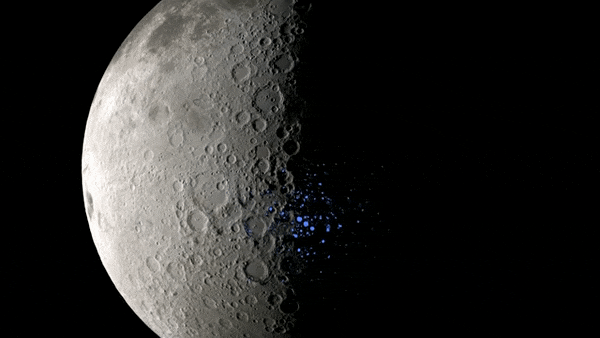Have you ever hiked to the top of a mountain and was rewarded to a beautiful view of nature? One of the first thoughts I got from this view is how vast Earth is. It houses millions of different species with each one falling within a phylum with unique and defining traits. However with the rapid expansion of human society, depletion of resources and the human nature to conquer the unknown, it is only natural for us to worry about potentially searching for a new home. One of the most common places people have looked to colonize is our closest neighbor, the moon.
Advantages of Moon Colonization
Having influenced many science fiction works such as 2001: A Space Odyssey, the moon is the closest celestial body to Earth and it offers some of the greatest advantages for colonization. Not only does this mean a shorter travel time, it also means less spending of resources on transportation as well as more responsive drone control from Earth and quicker communication with Earth. Spacecrafts like the SELENE and NASA’s Clementine Orbiter discovered many areas near the poles where it stays mostly illuminated which means those areas are great for setting up solar panels. On the opposite end of the spectrum, there is also areas of permanent shadow regions discovered by the Lunar Reconnaissance Orbiter. Many of of these areas are craters with water source trapped in them, which can be harnessed and be used by colonists.

Craters on the moon permanently shrouded in shadow. Source NASA
Drawbacks of Colonizing the Moon and the Limitations of our Technology
However, even with all of these advantages, there are still many drawbacks to choosing the moon as our next home. The moon has a surface boundary exosphere, meaning that it offers no atmospheric protection from asteroids and radiation, making colonization very dangerous without proper protection. Another issue is the extremely low gravity of the moon, which negatively impacts the human body by decreasing bone mas when the body is under low gravity for extended period of time. Due to this issue, proper habitation modules must be constructed. Not only does it need to shield us from the external dangers such as radiation and asteroids, it also needs to accommodate many internal factors such as, health management, life support, environmental management, etc. This can be extremely expensive and difficult to construct.

European Space Agency’s “Moon Village” concept. Credit: ESA/Foster + Partners
How Likely is it to Colonize the Moon?
Interplanetary colonization is a fascinating topic and will definitely be an obstacle humanity will have to overcome in the future. However I believe it is something that we can achieve in the near future. According to NASA’s Alexandra Hall and NextGen Space‘s Charles Miller, we can send another group of people to the moon and set up a colony in 3-5 years from now. The moon is currently our closest option, it offers many advantages as well as many disadvantages.
– Jerry Chen

One response to “Our Potential Future Home, the Moon”